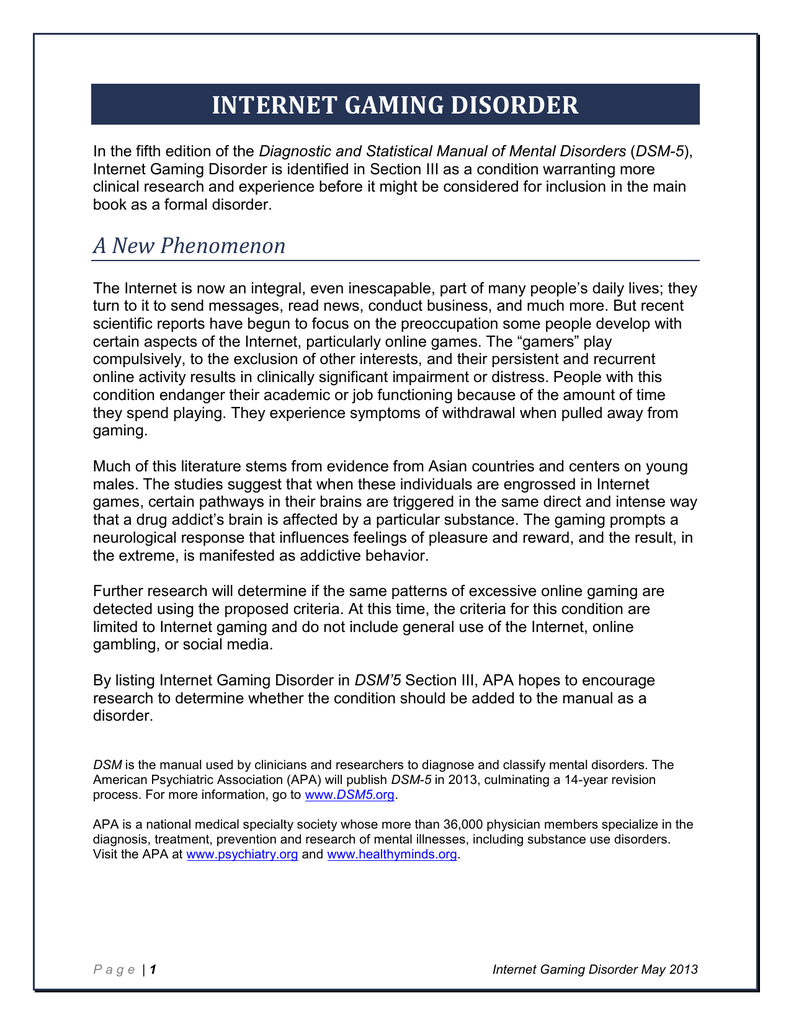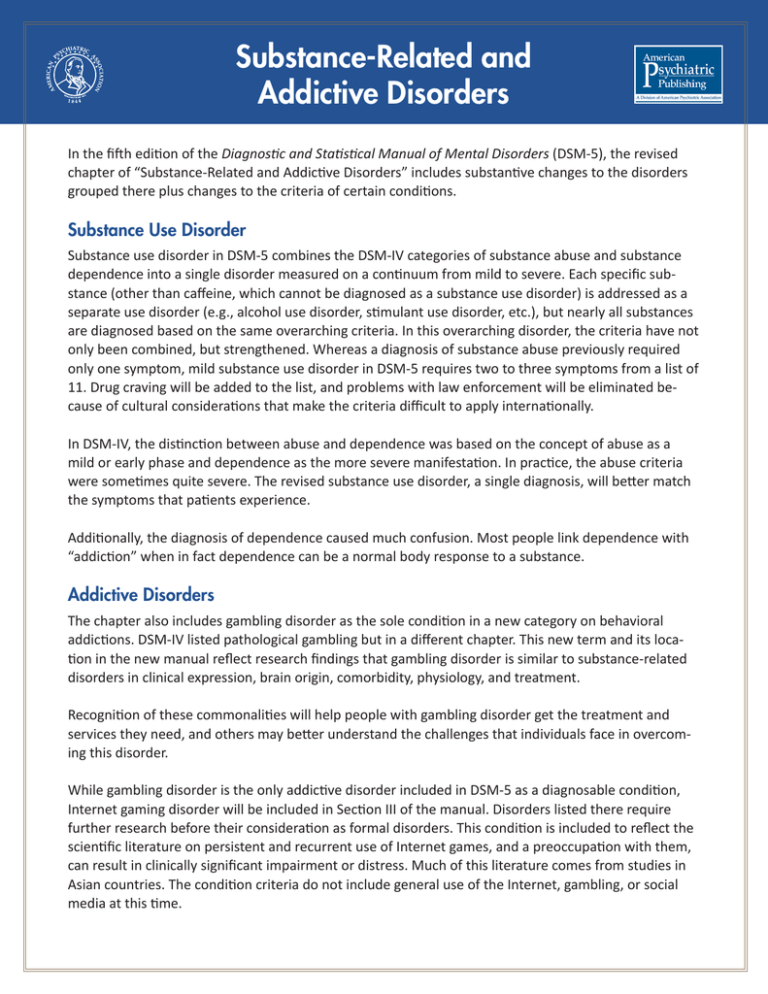Dsm V Social Media Addiction
The American Psychiatric Association APA will publish DSM-5 in 2013 culminating a 14-year revision process. Internet Gaming Disorder is a Condition for Further Study in the DSM-5 APA 2013.
The only non-substance related behavioral disorder listed in the new DSM-V is gambling addiction.

Dsm v social media addiction. Brent Conrad After years of speculation the American Psychiatric Association APA has confirmed that the next edition of the Diagnostic and Statistical Manual of Mental Disorders DSM-5 contains the category Internet Gaming Disorder. They sometimes fail to learn from their mistakes and continue down a path of negative outcomes. Video game addiction will appear in DSM-5 as Internet Gaming Disorder.
2014has been conceptualized as a potential behavioral addiction within a biopsychosocial framework comprising core addiction. At the micro level of practice social worksocial media intersections include. Internet addiction appears to be a common disorder that merits inclusion in DSM-V.
Section III of DSM-5. Excessive gaming sexual preoccupations and e. While there is no formal diagnosis of Social Media Disorder in the DSM-5 this study closely tracks measurements for Internet Gaming disorder - which is listed as a Condition for Further Study a.
So as of yet we do not classify internet or social media overuse an addiction. The Role of Internet Addiction and Social Media Membership. Professor Verdejo-Garcia has collaborated on a paper published in the Journal of Behavioural Addictions that begins to show that social media sites can make users behave as if theyre addicted.
DSM is the manual used by clinicians and researchers to diagnose and classify mental disorders. In the United States despite a growing body of research and treatment for the disorder available in out-patient and in. No longer is addiction divided into two vague and ill-defined.
Discussions concerning the inclusion of Internet addiction in DSM V classification have continued Pies 2009. This is because there is not yet enough scientific evidence to show that they truly are an addiction or disorder. This difference represents an important change in multiple ways as described below.
Given the evidence outlined above it may seem reasonable to support the pathologising of excessive social media use in a similar fashion to excessive gambling or alcohol use. It would be instructive boundaries between normal and editorial Block wrote Internet and important to obtain physiological disordered mental states3 and the addiction appears to be a common measures eg blood pressure pulse degree to which certain behaviors disorder that merits inclusion in rate of IA patients experiencing represent biologically based DSM-V. Social media addiction is not currently recognised in either the Diagnostic and Statistical Manual of Mental Disorders fifth edition DSM-V or the International Classification of Diseases 11th edition.
APA is a national medical specialty society whose more than 37000 physician members specialize in the diagnosis treat-. American Psychiatric Association 2013 or widely accepted diagnostic criteria Spada 2014 for social media disorder problematic social media usewhich is a specific type of problematic Internet use Griffiths et al. Dysfunction in these circuits leads to characteristic biological psychological social and spiritual manifestations.
Since that time IAD has been extensively studied and is indeed currently under consideration for inclusion in the DSM-V. Although there is no official diagnostic system eg DSM-5. Conceptually the diagnosis is a compulsive-impulsive spectrum disorder that involves online andor offline computer usage and consists of at least three subtypes.
1 Internet Addiction may come to be included as a clinical diagnosis. For example in a 2008 editorial for the American Journal of Psychiatry IAD Internet Addiction Disorder inclusion advocate Dr. While social network addiction is not included in the DSM IV many researchers advocated its inclusion in DSM V which is currently under way.
The Diagnostic and Statistical Manual of Mental Disorders Fifth Edition or DSM-5 is the American Psychiatric Associations goldstandard text on mental health that was crafted by hundreds of mental health experts. As of now Internet Addiction is not a recognized Disorder or Addiction by the American Psychological Association APA. Excessive gaming sexual preoccupations and e-mailtext messaging.
2 social media apps are currently being. DSM-5 is the fifth edition which was updated in 2013 with input from the top experts in the mental health field. Decision making is oftentimes compromised in individuals with substance use disorders.
Conceptually the diagnosis such. The DSM-5 under the American Psychological Association is the Diagnostic and Statistical Manual of Mental Disorders the tool by which these things are measured However the DSM. The trouble is excessive social networking isnt yet an official classification in the DSM-5.
This is reflected in an individual pathologically pursuing reward andor relief by substance use and other behaviors 3. This latest version improves the DSMs approach to substance use disorders. Jerald Block cited the case of South Korea stating that.
For example in a recent editorial Block wrote Internet addiction appears to be a common disorder that merits inclusion in DSM-V. However in DSM-5 American Psychiatric Association 2013 the category of Substance-related and Addictive Disorders replaces the Substance-related Disorders category found in DSM-IV-TR American Psychiatric Association 2000. This text is considered the gold standard on mental health and influences how disorders are investigated diagnosed and treated including addiction.
Social media addiction is currently not included as an addiction in the fifth edition of the Diagnostic and Statistical Manual of Mental Disorders DSM-5. With the DSM-V Internet Addiction was classified under Section III meaning further information is needed to classify it as a Disorder. The DSM-5 has helped change how we think about addictions by not overly focusing on withdrawal The DSM 5 has eleven criteria for substance use disorders based on decades of research.
Meanwhile both China and South Korea have identified Internet addiction as a significant public health threat and both countries support education research and treatment. Upon releasing this latest version of the DSM APA stated. This means that it is not an official disorder in the DSM but one on which the American Psychiatric.
Conceptually the diagnosis is a compulsive-impulsive spectrum disorder that involves online andor offline computer usage 1 2 and consists of at least three subtypes. Very similar to pathological gambling Internet addiction was also evaluated as an impulse-control disorder which did not involve an intoxicant like drug abuse. Addiction is a primary chronic disease of brain reward motivation memory and related circuitry.

Pdf Should Dsm V Designate Internet Addiction A Mental Disorder Semantic Scholar

Pdf The Relationship Between Addictive Use Of Social Media And Video Games And Symptoms Of Psychiatric Disorders A Large Scale Cross Sectional Study Semantic Scholar

Pdf Ethics Of The Attention Economy The Problem Of Social Media Addiction

Dsm Iv Substance Dependence And Dsm 5 Substance Use Disorder Download Table
Recruitment Flow Chart Dsm 5 Diagnostic And Statistical Manual Of Download Scientific Diagram

Dsm V Diagnostic Criteria For Opioid Use Disorder Download Scientific Diagram

Pdf Dsm 5 And The Decision Not To Include Sex Shopping Or Stealing As Addictions

Gas And Its Concordance With The Dsm 5 Proposed Criteria For Internet Download Table

Social Media And Depression Infographic Larkr On Demand Mental Health Care

Internet Gaming Disorder Dsm 5

View Of Internet Addiction A New Addiction Medical Journal Of Indonesia

Dsm 5 Proposed Criteria For Hypersexual Disorder Download Scientific Diagram

Substance Related And Addictive Disorders Dsm 5
Posting Komentar untuk "Dsm V Social Media Addiction"